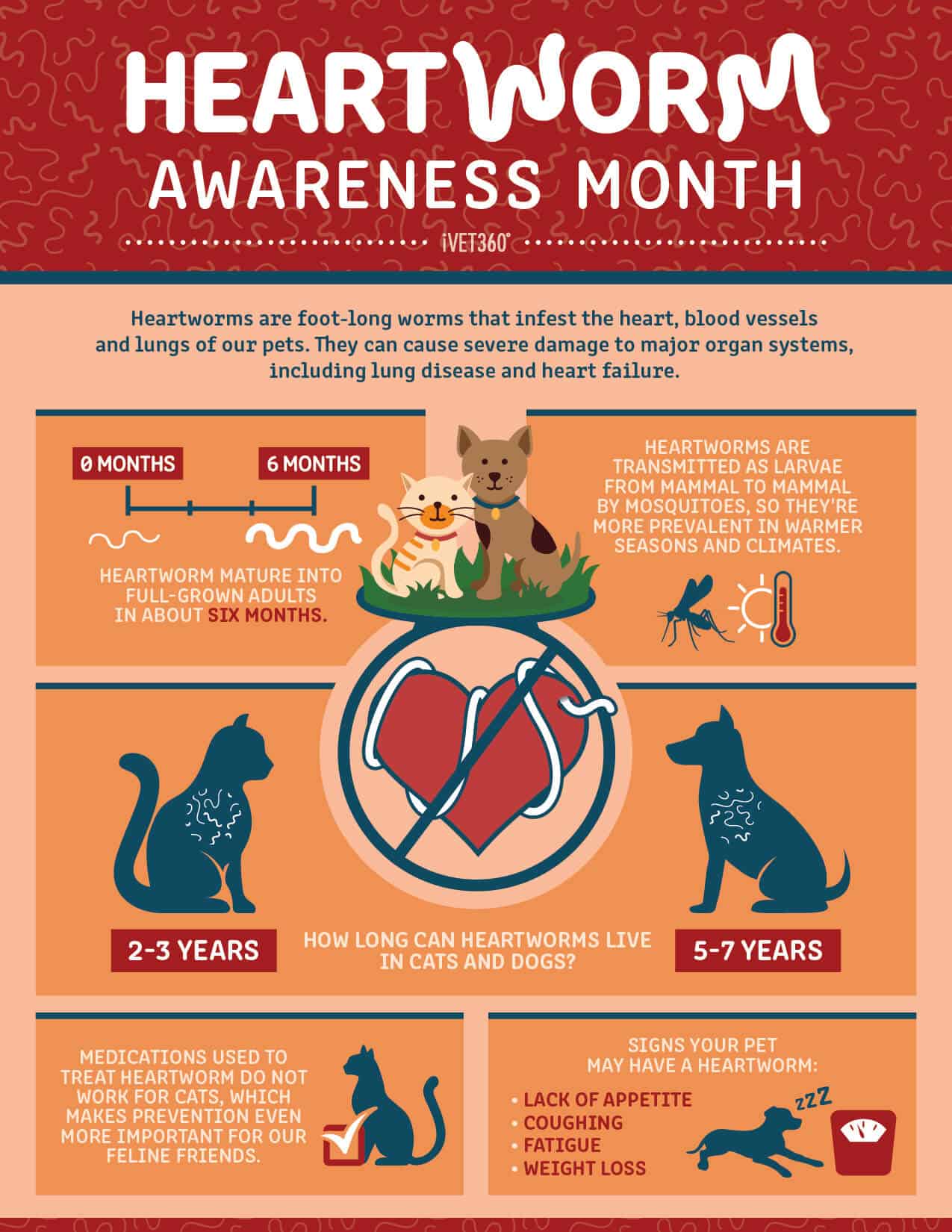April is Heartworm Awareness Month! In honor of it, we’ve put together some Frequently Asked Questions about heartworms and heartworm prevention.
As always, consult with your pet’s veterinarian about any questions you might have.
What are heartworms?
Heartworms are parasitic roundworms that are transmitted through mosquitoes. Heartworms are seriously damaging to your pet’s health and can cause heart failure, lung disease, and damage to other vital organs. Prevention is the best way to keep your pet safe from heartworms.
Are heartworms contagious?
Transmission is only possible through mosquito bites. Heartworms are not contagious if a dog is exposed to an infected dog.
What are the signs of heartworm?
In early stages, many dogs show little to no symptoms at all. The longer a dog is infected, the more likely symptoms will show. Symptoms may include a persistent cough, decreased appetite, weight loss, lethargy, fatigue after activity, and hesitation to exercise. As the infection continues, dogs may develop a swollen belly.
How do I receive preventative care for my pet?
Heartworm prevention must be prescribed by a vet after they have tested your pet for heartworms. If your pet tests negative, you then have multiple options for getting your pet on prevention.
If your pet tests positive, further testing and care will be needed from your vet.
What do I do if my pet tests positive for heartworms?
If your pet tests positive for heartworms, it’s important to confirm the diagnosis with additional tests. Once the diagnosis is confirmed, it’s vital to reduce activity and exercise for your dog. Treatment will need to be administered through your vet. It will then be essential to get your pet on prevention.
What kind of preventative care exists?
Heartworm prevention comes in a variety of forms, including pills, topical medications, and chews. Your vet will most likely carry heartworm prevention but it’s also available online once you have a prescription.
For more information about heartworms, please visit the American Heartworm Society’s website or speak with your vet.


